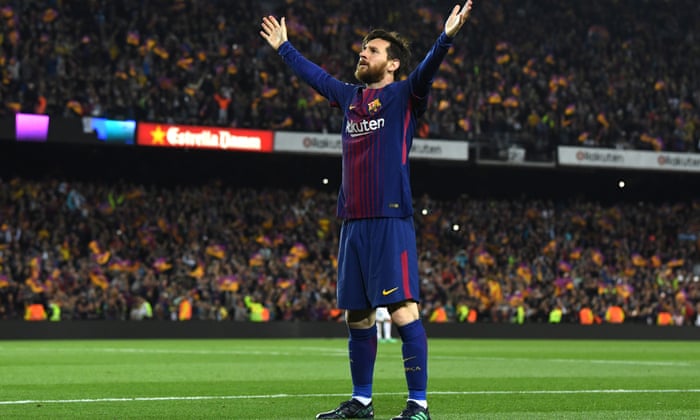
When the new season arrives there will be some changes to get your head around. New players, new managers, new shirts, new tactics and new haircuts. This year, there will also be a new broadcaster.
On Monday, Eleven Sports announced it will be launching in the UK on 9 August. Its opening event will be exclusive coverage of the US PGA Championship. That will be followed by both La Liga and Serie A football, pinched from under the noses of Sky Sports and BT Sports respectively. For some fans, who already pay for one or both of those services, this development will be like taking a rabbit punch to the wallet.
Eleven Sports does not see it quite like that, of course. A British company already active in seven countries, it casts itself as a nimble outsider taking on established broadcasting giants. Founded by Andrea Radrizzani, the owner of Leeds United, and run by Marc Watson, the man who won the Champions League for BT, Eleven sees its future success as being determined by an ability to shake things up.
“We’ve seen in our global markets that if there isn’t live competition there tends to be a lack of innovation,” Watson says. “New players bring new ideas and fresh thinking. They invest in new areas and look at different ways in which premium sports is produced, packaged and distributed. We can see a model for a challenger brand, which is what we come in as. But in those first 18 months you have to work really hard to find your position … to demonstrate you’re here to stay.”
In building its business across the world – in countries as disparate and different as Belgium, the United States and Singapore – Eleven has tried different tactics to engage new audiences. In Taiwan its anchors are not grizzled ex-pros but wise-cracking entertainers. In Italy it bought the rights to Serie C, serving every match live to a small but dedicated audience, and filming the matches on just two cameras (rather than the 33 mandated by the Premier League).
One constant has been to staff each business locally rather than fly them in from the UK. Another has been that the package on offer to customers pairs second- or even third-tier domestic sports, speedway in Poland or Ultimate Frisbee in the US, with top foreign football. It is a strategy it is following again in the UK.
“La Liga and Serie A are very good places to start”, says Watson. “They’re brilliant products, the viewing figures are very good. Sky have had La Liga for 20 years and there’s a reason for that, it works for them. It’s a good product with big teams and world-class players. They fought really hard to keep it away from BT three years ago, though the market has changed since then.”
That might be something of an understatement. Sky, the dominant force in sports broadcasting for two decades and still rights holder to the vast majority of Premier League matches, is currently the subject of two takeover bids, by Comcast and 21st Century Fox. BT, which entered the sports market in 2012, has scaled back its spending, perhaps reaching the limits of its strategy to lure customers to broadband through football. Amazon, meanwhile, has joined the party by acquiring the rights to two full Premier League matchdays per season (for an undisclosed fee).
Eleven does not rule out looking at the Premier League when the rights come up for sale once again in three years. It seems likely the landscape will be different then.
The company promises a new approach to covering La Liga and Serie A, one designed to appeal to a younger audience (at the same time it hopes to hold on to the same viewers who have watched Spanish football on Sky for 20 years). There will be space on its channel for Instagram sensations the F2 Freestylers and a less buttoned-up approach to matches.
More significantly, perhaps, Eleven looks set to change the way people pay to watch sport. The company says it is open to agreeing deals with BT, Sky or Virgin to carry their channel, but the primary way of accessing its content will be through its website or app. While the cost of watching Lionel Messi perform for Barcelona has yet to be announced, the marketing promises “affordable pricing” and no “bundled packages or contracts”. As an example of how it has done previously, Eleven’s Serie C coverage was available in season or month-long passes, or you could simply pay per match.
Being a global sports TV company without any broadband to flog or platforms to maintain opens up opportunities. Eleven has also taken risks – one of the countries it plans to expand into soon is Myanmar, a country suspected by the UN of having committed acts of genocide against its Rohingya people, where it has acquired the rights to broadcast the local football league. The company is “sensitive to the issues and made a considered decision to do business in Myanmar”, according to Watson. “We believe in the power of sport to bring people together.”
A new entrant in the competitive world of TV sports, with an ambition to do things differently, a lot of people will be watching Eleven Sports keenly.
[“Source-theguardian”]






